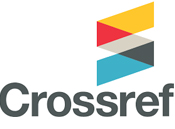Implementing the Problem-Based Learning (PBL) Model to Improve Learning Outcomes in Probability in Junior High Schools
Abstract
This study examines the effectiveness of the Problem-Based Learning (PBL) model in enhancing learning outcomes on probability materials among junior high school students. Employing a classroom action research design implemented over two cycles, this study involved eighth-grade students at a public junior high school in Pekanbaru. The PBL method was applied to increase student engagement in learning, facilitate a deep understanding of probability materials, and develop their problem-solving skills. The findings indicate that implementing PBL successfully increased the percentage of students achieving the minimum mastery criterion (KKM) from 30% at the baseline to 65% at the end of the second cycle. This research confirms that PBL is an effective learning strategy for probability materials at the junior high school level, with positive implications for conceptual understanding, social skills, and student learning motivation. These findings suggest that the PBL approach should be more broadly applied in the school mathematics curriculum to enhance mathematics learning outcomes.
References
H. M. Siregar, “Profil Hasil Belajar Mahasiswa Pendidikan Matematika pada Materi Sistem Persamaan Linear dan Matriks Mata Kuliah Aljabar Linear,” J. Pendidik. Mat. Univ. Lampung, vol. 11, no. 3, pp. 193–203, 2023, doi: http://dx.doi.org/10.23960/mtk/v11i3.pp193-203.
O. Hamalik, Kurikulum dan Pembelajaran. Jakarta: Bumi Aksara, 2011.
H. M. Siregar, T. Solfitri, and S. N. Siregar, “The Relationship between Perceptions of Online Learning and Self-Regulation of Mathematics Education Students,” J. Didakt. Mat., vol. 8, no. 2, pp. 208–221, 2021, doi: 10.24815/jdm.v8i2.21882.
H. M. Siregar and T. Solfitri, “An Analysis of Students’ Errors in Solving Indefinite Integral Problems Viewed From Gender Differences,” J. Res. Math. Instr., vol. 1, no. 1, pp. 17–24, 2019, doi: 10.33578/jrmi.v1i1.12.
H. M. Siregar, “Pengembangan Angket Self-Regulation Mahasiswa Pendidikan Matematika di Masa Pandemi Covid-19,” AKSIOMA J. Progr. Stud. Pendidik. Mat., vol. 10, no. 3, pp. 1685–1695, 2021, doi: 10.24127/ajpm.v10i3.3870.
Rusman, Model-model Pembelajaran: Mengembangkan Profesionalisme Guru Edisi Kedua. Jakarta: Rajawali Pers, 2016.
H. Zahira, Zulkarnain, and P. Yuanita, “The Effect of Using LKPD Based of Problem Based Learning Model on Improving the Ability of Students’ Mathematical Communication,” J. Res. Math. Instr., vol. 1, no. 2, pp. 18–24, 2020, doi: 10.33578/jrmi.v1i2.19.
R. D. Junita, T. Solfitri, and S. N. Siregar, “Penerapan Model Problem Based Learning (PBL) Untuk Meningkatkan Hasil Belajar Matematika Peserta Didik Kelas VII-A SMPNegeri 40 Pekanbaru,” J. Absis J. Pendidik. Mat. dan Mat., vol. 3, no. 1, pp. 230–239, 2020, doi: https://doi.org/10.30606/absis.v3i1.570.
S. Arikunto, Suhardjono, and Supardi, Penelitian Tindakan Kelas. Jakarta: Bumi Aksara, 2016.
T. Avianti, P. Yuanita, and Sakur, “Application of Problem-Based Learning Model to Improve Mathematical Problem-Solving Ability of Class VII-B Students of MTs PP Nurul Huda Lubuk Batu Jaya,” J. Res. Math. Instr., vol. 3, no. 2, pp. 44–53, 2022, doi: https://doi.org/10.33578/jrmi.v3i2.68.
Copyright (c) 2023 Journal of Research on Mathematics Instruction (JRMI)

This work is licensed under a Creative Commons Attribution-NonCommercial-ShareAlike 4.0 International License.






